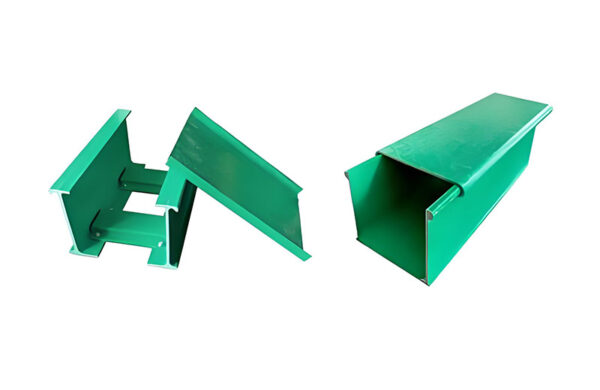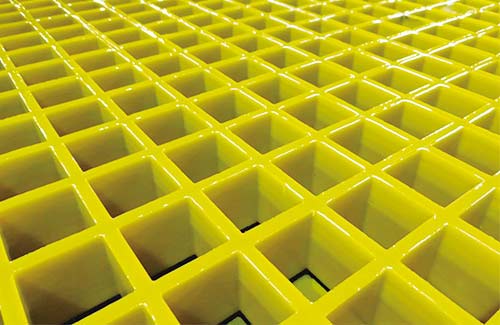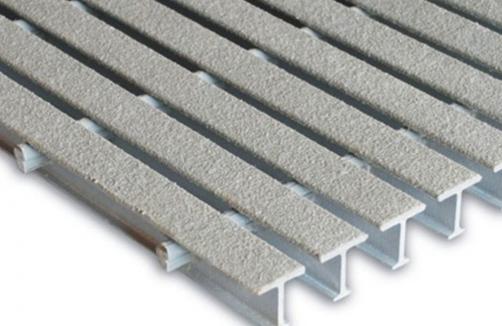FRP Grating in Chemical Industry: The Ultimate Solution for Industrial Flooring Challenges
Industrial flooring in the chemical industry faces numerous challenges, including corrosion, heavy loads, and exposure to hazardous substances. Traditional materials like concrete and steel often fail under these conditions, leading to costly repairs and downtime. Fiber Reinforced Polymer (FRP) grating has emerged as a superior alternative, offering durability, chemical resistance, and ease of installation. But what makes FRP grating the ultimate solution for industrial flooring challenges?
Why Traditional Industrial Flooring Fails

Many chemical plants rely on concrete or steel flooring, which, despite being robust, has significant limitations. Concrete can crack under heavy loads and is highly susceptible to chemical erosion, especially in environments with acids, alkalis, or solvents. Steel, while strong, rusts when exposed to moisture and chemicals, compromising structural integrity over time. These issues not only pose safety risks but also require frequent maintenance and replacement, incurring high costs.
What alternatives are available, and why do they fall short? For instance, epoxy coatings may offer temporary protection but can chip or peel under heavy traffic. Cast-in-place concrete requires extensive curing time and is prone to cracking. Steel grating, while durable, demands regular painting and rust treatment. The need for a long-lasting, low-maintenance solution becomes evident.
Introducing FRP Grating: The Ideal Choice
FRP grating, composed of fiberglass reinforced with polymer resin, combines the strength of steel with the corrosion resistance of plastic. This unique composition makes it highly suitable for chemical industry applications. Here’s why FRP grating stands out:
1. Chemical Resistance
FRP grating is immune to corrosion from acids, bases, oils, and solvents—substances that would quickly degrade traditional materials. This makes it ideal for environments where chemical spills are common.
2. Lightweight Yet Strong
Unlike steel, FRP grating is lightweight, reducing the load on substructures and minimizing the risk of floor collapse. Yet, it maintains high strength, capable of supporting heavy industrial equipment without buckling.
3. Easy Installation and Maintenance
FRP grating panels are pre-fabricated and can be installed quickly with minimal tools, saving time and labor costs. Unlike concrete, it doesn’t require sealing or painting, further reducing maintenance requirements.
4. Safety Features
Many FRP grating products come with non-slip surfaces, reducing slip hazards in wet or oily conditions. Additionally, they can be customized with safety railings and walkways for added protection.
Addressing Common Questions
Q: Is FRP Grating Cost-Effective?
A: While the initial cost may be higher than concrete or steel, FRP grating’s durability and low maintenance significantly reduce long-term expenses. Its lifespan often exceeds 50 years, compared to 15-20 years for steel or concrete.
Q: Can FRP Grating Withstand Extreme Temperatures?
A: Most FRP grating products are designed to withstand temperatures between -40°F and 400°F (-40°C and 200°C), making them suitable for a wide range of industrial environments.
Q: How Does FRP Grating Compare to Other Materials?
A: Unlike steel, FRP doesn’t rust; unlike concrete, it doesn’t crack under heavy loads. It also outperforms polyurethane or asphalt-based coatings in terms of longevity and chemical resistance.
Shareable Insights for Industry Professionals
For chemical plant managers and engineers, investing in FRP grating offers numerous benefits:
– Extended Equipment Lifespan: Protects machinery from corrosive substances.
– Reduced Downtime: Minimal maintenance means fewer interruptions in operations.
– Environmental Compliance: Non-toxic and recyclable, aligning with sustainability goals.
Companies like [Your Company Name] specialize in designing and manufacturing high-quality FRP grating solutions tailored to chemical industry needs. Our products meet stringent safety standards and are backed by expert technical support.
Conclusion
FRP grating is revolutionizing industrial flooring in the chemical industry by addressing key challenges such as corrosion, heavy loads, and hazardous exposures. Its durability, ease of installation, and cost-effectiveness make it the ultimate solution for maintaining safe, efficient, and long-lasting flooring systems. By choosing FRP grating, chemical plants can enhance operational efficiency, reduce maintenance costs, and ensure compliance with industry standards.
For more information on how FRP grating can transform your industrial flooring, contact [Your Company Name] today. Let’s build a stronger, more resilient foundation for your facility.







